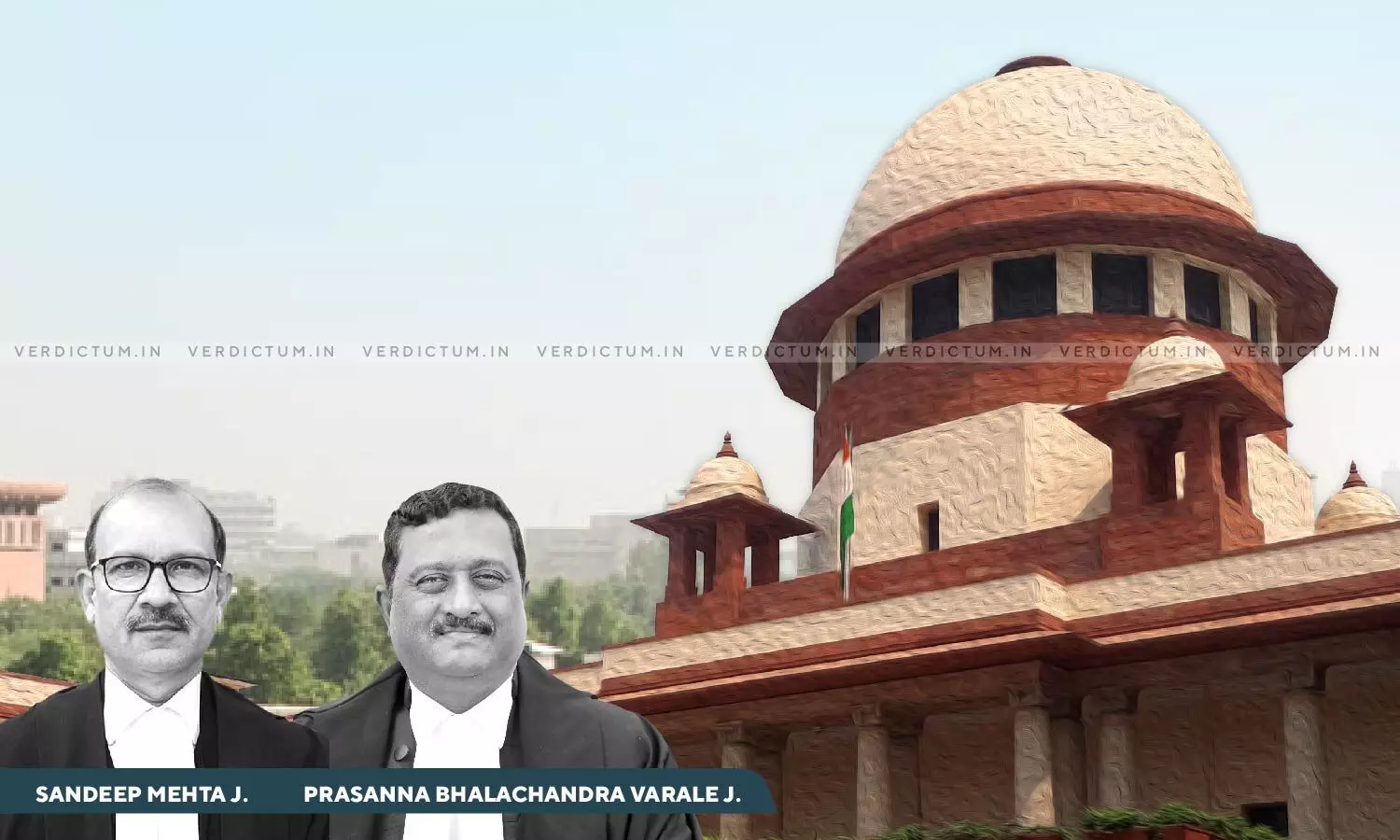
Confessional Statements U/S 67 NDPS Act Are Not Admissible In Evidence: Supreme Court
 |
|The Supreme Court reiterated that a confession recorded under Section 67 of the NDPS Act is not admissible in evidence.
The Bench pointed out that how the appellant in this case was apprehended and brought to the NCB Office at Ahmedabad in the purported exercise of recording his statement under Section 67 of the Narcotic Drugs and Psychotropic Substances Act, 1985 (NDPS Act) was full of “doubt and creates grave suspicion.”
Justice Sandeep Mehta and Justice Prasanna Bhalachandra Varale observed, “The confession of the accused recorded under Section 67 of the NDPS Act cannot be admitted in evidence as a confession as had been held in the case of Tofan Singh(supra). Hence the confessional statement(Exhibit-42) does not lend any succour to the prosecution in its quest to prove the charges against the accused Firdoskhan(A-2).
AOR T.N. Singh represented the appellant, while Advocate Deepanwita Priyanka appeared for the respondents.
The trial courts had convicted the appellants for the offences under Section 21 read with Section 8(c) and Section 29 of the NDPS Act after the seizure of contraband/illicit substances. The prosecution, led by Intelligence Officers, presented evidence suggesting the possession and trafficking of narcotics by the appellants.
The appellant argued that the incriminating evidence recorded by NCB officials under Section 67 of the NDPS Act relied upon by the trial Court as well as the High Court should be omitted from consideration in light of the Supreme Court’s ruling in Tofan Singh v. State of Tamil Nadu (2021) 4 SCC 1.
The Court stated that the admissibility of a confessional statement of an accused recorded under Section 67 of the NDPS Act was examined in the Tofan Singh case (supra) where it was laid down that such confessional statements were not admissible as evidence.
“Hence, the statement…wherein he allegedly identified the appellant Firdoskhan(A-2) as the person who had escaped from the spot cannot be read in evidence against the appellant Firdoskhan(A-2) because the manner in which the said statement was recorded leaves much to be desired and creates a grave doubt on the sanctity thereof, in addition to the same having rendered inadmissible by virtue of Tofan Singh,” the Court held.
The Court discarded the evidence presented by the NCB officials stating that the evidence claimed to have identified the appellant was neither reliable nor was it corroborated by any other independent evidence. Secondly, the identification of the appellant was done more than two years from the date of the incident.
Consequently, the Court acquitted the appellant and upheld the conviction of another.
Cause Title: Firdoskhan Khurshidkhan v. The State of Gujarat & Anr. (Neutral Citation: 2024 INSC 351)
Appearance:
Appellant: AOR T.N. Singh; Advocates Vikas Kumar Singh and Rajshree Singh
Respondents: AOR Swati Ghildiyal and Arvind Kumar Sharma; Advocates Deepanwita Priyanka, Devyani Bhatt, Padmesh Mishra, Arkaj Kumar and Zoheb Hussain